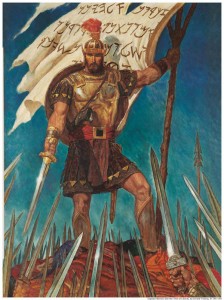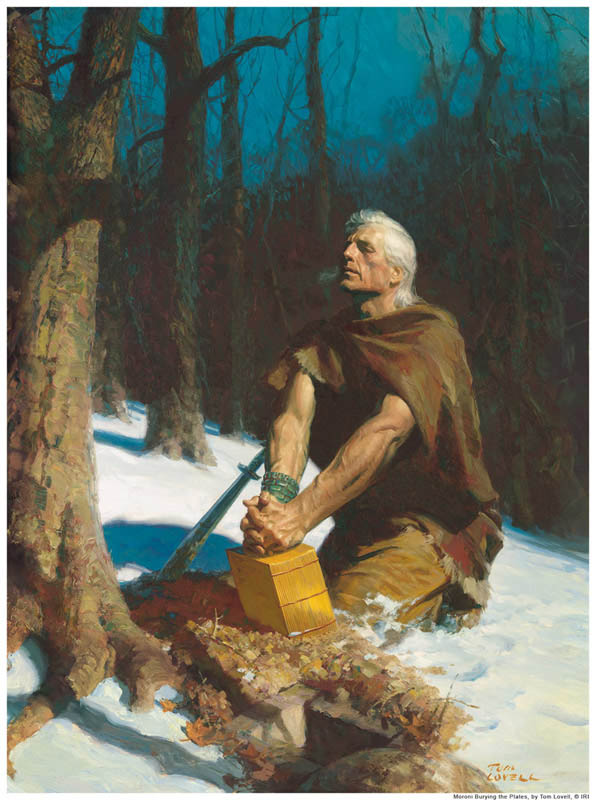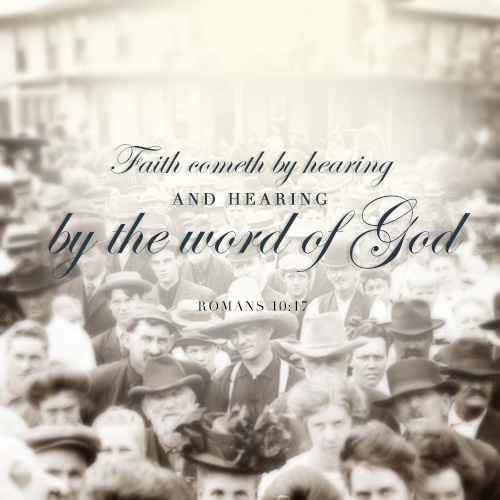Moroni was a great general whose life is described in the Book of Mormon. The Book of Mormon is used by Mormons (a nickname for members of The Church of Jesus Christ of Latter-day Saints) as a companion to the Bible and was written in ancient times, both before and after the birth of Jesus Christ. This story took place about 62 BC.
 Moroni was a brilliant general, a highly spiritual man of God, and a great patriot. He was extremely passionate about the things that mattered to him. Usually, that passion allowed him to work miracles, such as training a group of inexperienced young men to be mighty soldiers. Sometimes, though, his passion got him into a bit of trouble, as is often the case for those of us who are passionate about things.
Moroni was a brilliant general, a highly spiritual man of God, and a great patriot. He was extremely passionate about the things that mattered to him. Usually, that passion allowed him to work miracles, such as training a group of inexperienced young men to be mighty soldiers. Sometimes, though, his passion got him into a bit of trouble, as is often the case for those of us who are passionate about things.
While leading his soldiers to reclaim lands taken from them by their enemy, he learned the city of Nephihah was in danger from their enemies, the Lamanites. He wrote to Pahoran, the governor, requesting additional soldiers and new provisions. Trusting they would arrive, he continued his work in maintaining the reclaimed cities.
However, the supplies and soldiers did not arrive and the people of Nephihah were attacked. Many died, and the survivors fled. Moroni, who loved those he served, and who loved his country, was furious. He sat down and dashed out an angry epistle to Pahoran.
He felt his government was not committed to the cause of freedom. He reminded Pahoran that he had been chosen to protect the land and to support the soldiers, but that due to his lack of concern, the soldiers were hungry and thirsty, suffering from a lack of provisions. Thousands of civilians had been killed, something that would not have happened without the neglect they’d been shown.
Can you think to sit upon your thrones in a state of thoughtless stupor, while your enemies are spreading the work of death around you? (Alma 60:7).
Behold, could ye suppose that ye could sit upon your thrones, and because of the exceeding goodness of God ye could do nothing and he would deliver you? Behold, if ye have supposed this ye have supposed in vain (verse 11).
But why should I say much concerning this matter? For we know not but what ye yourselves are seeking for authority. We know not but what ye are also traitors to your country. Or is it that ye have neglected us because ye are in the heart of our country and ye are surrounded by security, that ye do not cause food to be sent unto us, and also men to strengthen our armies? (verses 18-19).
Moroni called Pahoran to repentance and demanded he send the supplies and soldiers requested. He threatened insurrection if his demands were not met, saying he would come there, round up anyone who supported the cause of freedom, and would kill Pahoran in order to protect the nation.
Moroni was Passing Judgment without Enough Information
Unfortunately, Moroni did not have all the facts of the situation before passing judgment on Pahoran, a man he knew and respected. His love for his soldiers and for the people he was defending, and his anguish at their suffering, coupled with his love for his country, which was under attack, led him to leap to faulty conclusions.
Pahoran was already the victim of insurrection from people in his own city who had aligned with their enemies and had forcibly removed Pahoran from his position. They had taken the city by force. Pahoran and a few of his supporters had fled and were gradually getting word to other supporters about where they were. These supporters were gathering and working towards retaking the capital. However, the provisions Moroni had requested were being held by their enemies, and the soldiers were needed to retake the capital city and thus the country. This was the reason Pahoran had not sent the requested men and provisions.
Pahoran’s Response: Christlike Love
Personally, if I’d gotten that letter from Moroni, I would have been furious. I’d have sat right down at my computer…well, scrolls, or whatever they wrote letters on…and dashed out an equally angry response, especially coming from someone who ought to have known me bet ter than that. Then, of course, I’d have felt guilty the moment it was too late to recall the letter.
ter than that. Then, of course, I’d have felt guilty the moment it was too late to recall the letter.
Pahoran was much more Christlike than that. He controlled himself right from the start and wrote a gentle letter. He explained the insurrection and reassured Moroni that his heart ached for the suffering of the soldiers and the citizens who had been attacked. He said, knowing that when Moroni read the explanation he would be devastated by the angry words he’d sent, that there were no hard feelings. “I am not angry, but I rejoice in the greatness of your heart.” He even insisted he was grateful for the letter because he had been uneasy about waging war to get his kingdom back. After all, some of the people he would be fighting were his own people, who had initiated the insurrection. However, Moroni’s thoughts on the role of government had reassured him that he had a duty to his people to take back the land.
He then asked Moroni to return with soldiers and anyone else he could recruit during the journey. Together, he assured Moroni, they would take back the land and remove the traitors. Finally, he sent the letter with some provisions, despite the fact that provisions were clearly in short supply among the leaders of the ousted government.
What Motivated Pahoran’s Christlike Response?
Pahoran refused to judge Moroni. He understood that Moroni was under great stress and that his sadness and fears were behind the letter. He knew this was not the person Moroni normally was and so he responded to the real Moroni, not the one who had written the letter.
When we believe or say we have been offended, we usually mean we feel insulted, mistreated, snubbed, or disrespected. And certainly clumsy, embarrassing, unprincipled, and mean-spirited things do occur in our interactions with other people that would allow us to take offense. However, it ultimately is impossible for another person to offend you or to offend me. Indeed, believing that another person offended us is fundamentally false. To be offended is a choice we make; it is not a condition inflicted or imposed upon us by someone or something else.
In the grand division of all of God’s creations, there are things to act and things to be acted upon (see 2 Nephi 2:13–14). As sons and daughters of our Heavenly Father, we have been blessed with the gift of moral agency, the capacity for independent action and choice. Endowed with agency, you and I are agents, and we primarily are to act and not just be acted upon. To believe that someone or something can make us feel offended, angry, hurt, or bitter diminishes our moral agency and transforms us into objects to be acted upon. As agents, however, you and I have the power to act and to choose how we will respond to an offensive or hurtful situation—David A. Bednar, And Nothing Shall Offend Them, General Conference of The Church of Jesus Christ of Latter-day Saints General Conference, October 2006.
Had Pahoran reacted with anger, an entire nation might have been lost. In the end, Pahoran’s Christlike response to being verbally attacked allowed the two men to work together to save their country. Moroni was relieved to realize he had been wrong and there is no doubt he was sorry he had allowed the stress of his situation to cause him to unfairly judge his leader. He learned lessons from Pahoran’s great heart that served him the rest of his life.
http://youtu.be/GwBb33wIhAE
About Terrie Lynn Bittner
The late Terrie Lynn Bittner—beloved wife, mother, grandmother, and friend—was the author of two homeschooling books and numerous articles, including several that appeared in Latter-day Saint magazines. She became a member of the Church at the age of 17 and began sharing her faith online in 1992.







